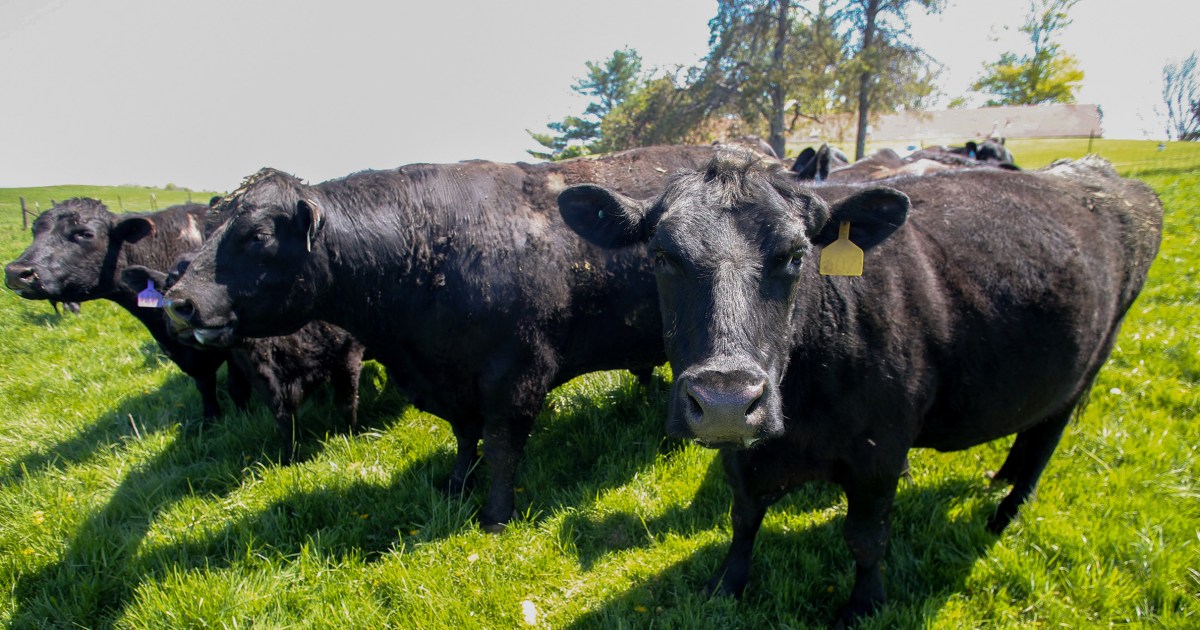In a bold and controversial decision, Australia has lifted its long-standing restrictions on imports of U.S. beef, prompting U.S. President Donald Trump to declare it a significant victory for American
Did You Know
Koalas have fingerprints like humans.
?
AD
agriculture. This move comes after ongoing tensions surrounding trade tariffs, as Trump highlighted Australia’s import restrictions as an unfair trade barrier. The Australian government stated that the relaxation of these rules followed a rigorous assessment of biosecurity risks, maintaining that national standards will be upheld.
Local farmers and industry experts, however, are voicing their reservations about the implications of increased U.S. beef imports. Many are concerned that the influx of American beef could undermine their livelihoods, particularly if U.S. beef prices become competitive. While some industry representatives argue that domestic supply chains are robust enough to withstand this change, others express concern over potential disruption, emphasizing the need for vigilance in maintaining Australia’s stringent agricultural standards.
This pivotal decision not only signifies a shift in Australia’s trade policy but also raises vital discussions about the balance between international trade relations and protecting local industries. As Australia seeks to enhance cooperation with the U.S. amidst ongoing negotiations, the mixed reactions from various stakeholders illustrate the complexity of navigating global trade. With potential benefits and risks at play, the future landscape of Australia’s beef industry hangs in the balance, as farmers brace themselves for the consequences of this landmark change.
Q&A (Auto-generated by AI)
What are the reasons for the beef ban lift?
Australia lifted its ban on US beef imports primarily to ease trade tensions with the United States and address demands from the Trump administration. The decision followed a relaxation of biosecurity regulations, which had been a significant point of contention. Officials argued that the change was based on a scientific assessment rather than political pressure, but it was perceived as a move to strengthen economic ties and facilitate ongoing trade negotiations.
How did Trump influence Australia's decision?
President Trump exerted considerable influence on Australia's decision to lift the beef ban through his administration's persistent pressure regarding trade barriers. Trump's vocal criticism of Australia's biosecurity measures as non-scientific and unfair impediments to trade prompted Australian leaders to reconsider their stance. His demands were framed as a means to bolster US agricultural exports, which resonated with a key voter base in the US.
What biosecurity measures are in place for imports?
Australia's biosecurity measures are designed to protect the country's agricultural sector from diseases that could be introduced through imported meat. These include strict regulations on cattle sourcing, health certifications, and inspections to ensure that imported beef meets safety standards. The recent lifting of the ban indicates that Australia is satisfied with improvements in US cattle traceability and health protocols, allowing for a controlled import environment.
What impact will this have on Australian farmers?
The lifting of the US beef import ban has raised concerns among Australian farmers about potential market disruptions. While some industry leaders believe that the increased imports will have minimal impact on local prices due to high production costs, others worry about competition from potentially cheaper US beef. The government insists that biosecurity measures will prevent any significant flooding of the market, but farmers remain cautious about the long-term implications.
How have US tariffs affected trade relations?
US tariffs have significantly impacted trade relations between the US and Australia, creating tensions and prompting negotiations. The Trump administration used tariffs as leverage to address grievances, including restrictions on US beef imports. The lifting of the ban is seen as a response to these tariffs, aimed at improving bilateral trade relations and potentially leading to a reduction in tariffs on Australian exports to the US.














